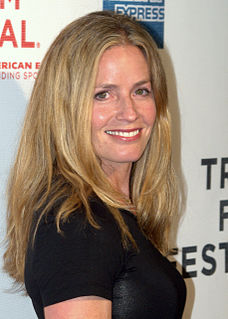A Quote by James Heckman
For a variety of reasons, I have always felt myself an outsider. I don't know how to classify myself in economics. I am a loner. I do not like groupthink, which, if anything, has become more important in economics. In addition, a lot of the values I hold are not the mainstream values in the profession.
Related Quotes
Anyway that's a large part of what economics is - people arbitrarily, or as a matter of taste, assigning numerical values to non-numerical things. And then pretending that they haven't just made the numbers up, which they have. Economics is like astrology in that sense, except that economics serves to justify the current power structure, and so it has a lot of fervent believers among the powerful
Perhaps the most widespread misunderstanding of economics is that it applies solely to financial transactions. Frequently this leads to statements that "there are noneconomic values" to consider. There are, of course, noneconomic values. Indeed, there are only noneconomic values. Economics is not a value itself but merely a method of trading off one value against another.
Since the global financial crisis and recession of 2007-2009, criticism of the economics profession has intensified. The failure of all but a few professional economists to forecast the episode - the aftereffects of which still linger - has led many to question whether the economics profession contributes anything significant to society.
I am practical by nature, and I'd heard that being a writer or an artist is a good way to starve! So I was an economics major at Oklahoma State, and then received an M.S. from Cornell in Agricultural Resource and Managerial Economics. I knew if I wanted to write I would do it on my own, but I knew I wouldn't make myself study economics on my own.
When people are running up more and more debt for housing, they call that "real wealth." It exposes what's wrong in the mainstream economics and why most of the economics that justifies austerity programs and economic shrinkage is in the textbooks is not scientific. Junk economics denies the role of debt and denies the fact that the economic system we have now is dysfunctional.
I think historically modern economics, capitalist economics, tends to erode moral categories... And this is where I think the right gets capitalism wrong. They kind of assume that there is a moral equivalence or moral valence to capitalism, but I tend to think that economics erodes all the kind of cultural taboos and inhibitions and values it comes into contact with.
Look me in the eye. It’s ok if you’re scared. So am I. But we are scared for different reasons. I am scared of what I won’t become. And you are scared of what I could become. Look at me. I won’t let myself end where I started. I won’t let myself finish where I began. I know what is within me, even if you can’t see it yet. Look me in the eyes. I have something more important than courage. I have patience. I will become what I know I am.
Classical economics values things by seeing how much someone will pay for them. But this is where classical economics is wrong. What it fails to account for are all the 'externalities' - the services people regard as free goods: pollination services, flood protection, climate regulation, soil stabilization, carbon sequestration.
I do sense, as compared with let's say the early '50s, there's somewhat more of a careerism. I don't think it's anything special to economics; it's equally true with physics or biology. A graduate education has become a more career-oriented thing, and part of that is because of the need for funding. In fact, that's a much worse problem in the natural sciences than it is in economics. So you can't even do your work in the natural sciences, particularly, and even to some extent in economics, without funding.




































